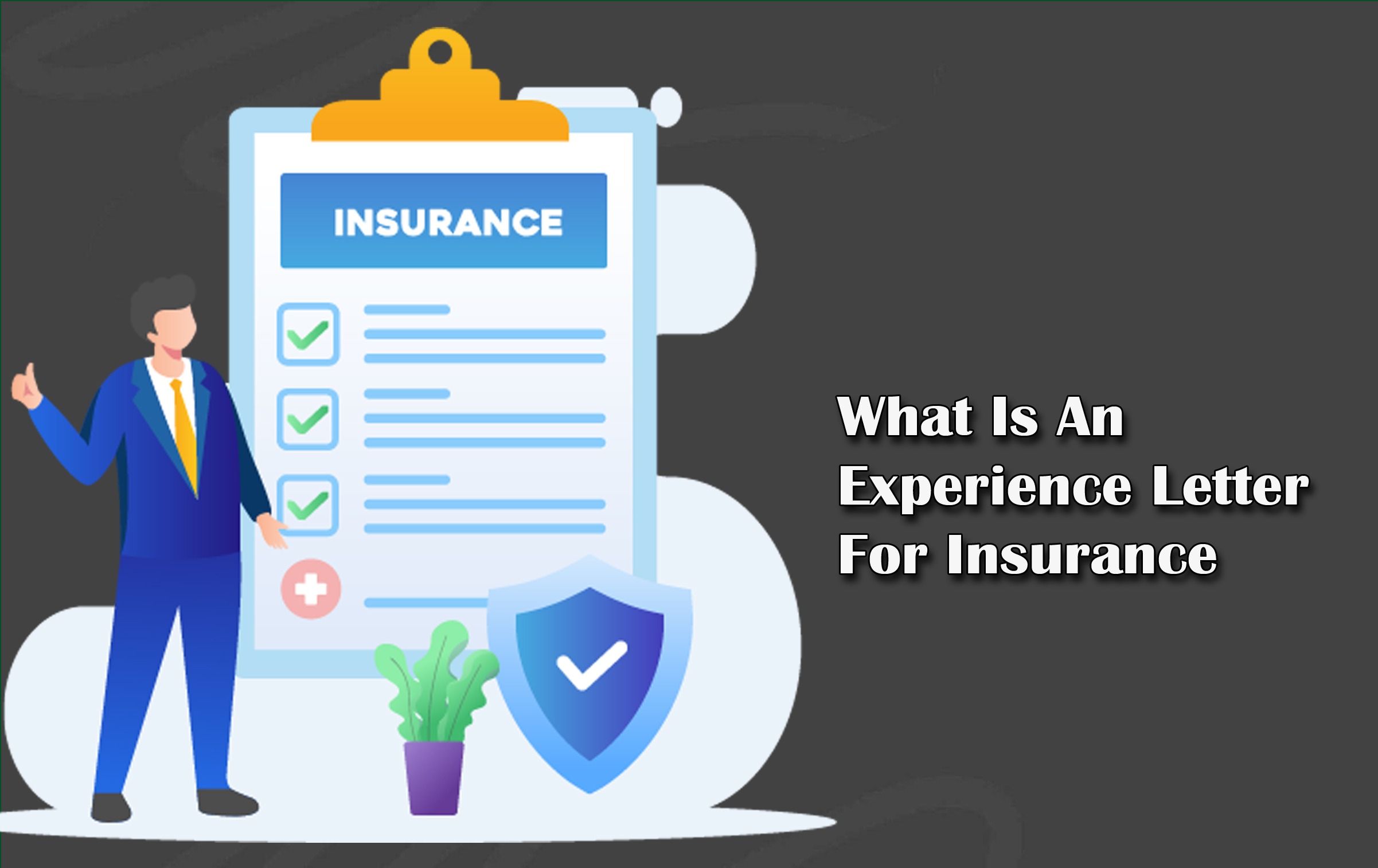
An experience letter for insurance, also known as a claim experience letter or claim history letter, is a document that summarizes a policyholder’s insurance record.

It includes details about the insurance policies maintained, claims filed, and overall history with the insurer. These letters are especially common in car and home insurance.
Insurance companies often use this letter to determine discounts or assess eligibility for new policies. A good insurance record can help policyholders receive better rates or benefits when switching to a new insurer, as it reflects responsible insurance management over time.
So, when do you need one, and how do you get one? Stick with us to find out.
How Does It Work For Insurance?
An experience letter for insurance works like a referral from your previous insurer to your new insurer.
It’s a document that provides details about your past insurance policies and claims, helping the new insurer understand your history.
Essentially, it’s your old insurer vouching for you by sharing insights about how well you’ve managed your policies.
When switching to a new insurance company, your experience letter can improve your chances of getting discounts, especially if it shows a strong record.
For instance, if you’ve filed few or no claims, you’re more likely to qualify for lower insurance premiums.
Insurance companies also consider other factors when setting your premium rates, such as your credit score, risk level, and claim history.
They use the information in your experience letter to determine whether you’re a high-risk or low-risk customer, which directly impacts your pricing and eligibility for discounts.
What Information Is In An Experience Letter?
An experience letter includes important details about the policyholder and their insurance history. This information is important for insurance companies when evaluating new applications, especially for car or home insurance.
Here’s what you’ll usually find in an experience letter:
- Policyholder’s details: Name and contact information (such as phone numbers).
- Policy details: Start and end dates of insurance policies, insured addresses or vehicles, and reasons for policy cancellations.
If you’ve filed any claims, the letter will also include:
- The date each claim was made.
- The status of the claim (open or settled).
- The reason for the claim.
- The settlement amount.
For car insurance, additional details about claims might be included:
- Whether the driver was at fault.
- The percentage of responsibility assigned to the driver.
- Information about the vehicle involved in the claim.
This information helps insurance companies determine your risk level before deciding your premium rates.
When Do You Need One?
An experience letter is often needed when you switch insurance providers. It allows your new insurer to review your previous policies and claims history.
Although insurers can access some records through databases, these might not always be complete, especially if you’ve moved to a new country or province.
In such cases, your new insurer may request an experience letter to fill in any gaps. While some companies might still offer coverage without the letter, you might miss out on discounts because they lack the information needed to evaluate your history.
Keep in mind that insurers are not always required to recognize foreign insurance or driving experience when calculating discounts.
Some companies do, but others may only focus on your driving history. Additionally, you may need an experience letter if you believe your insurance report is inaccurate or incomplete when calculating premiums.
How To Get
Getting an experience letter is straightforward. Contact your current or previous insurer and request the letter. In some cases, you might need to complete a simple request form.
For example, if you’re a policyholder with Square One, you can easily download your insurance reports from their online platform.
Remember, you need an experience letter from all your previous insurers each time you change providers.
If you purchased your policy through a broker, the insurer must issue the letter directly. However, brokers can often assist you in obtaining it.
Can An Experience Letter Get You A Discount On Car Insurance?
Yes, a good insurance history reflected in an experience letter can help you get discounts, often referred to as claim-free discounts.
These discounts are available to policyholders who have a clean insurance record with few or no claims filed.
If insurers cannot find your history through their databases, you’ll need to provide an experience letter.
On the other hand, if your record shows frequent claims or poor policy management, you might not qualify for discounts and could even be classified as a high-risk customer.
Having a well-documented experience letter is key to saving money and building trust with your new insurer.